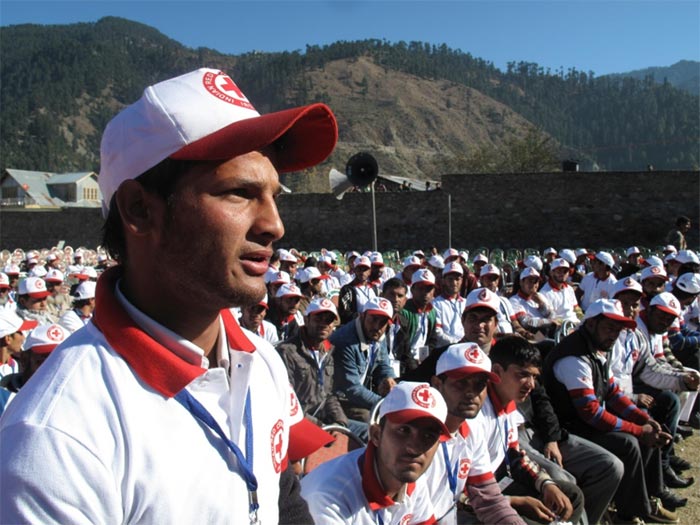
Photo: Maude Froberg
The place was Bhaderwah in Doda district of Jammu & Kashmir, and the event was the inauguration of the FMR training module of the Indian Red Cross Society on the 16th of November 2013. What bigger reason to start this volunteer training in Bhaderwah than the fact that this area lies in a zone that is most vulnerable to earthquakes and was rocked by intense tremors in May this year.
Honourable Chairman of the Indian Red Cross Society, the Union Minister for Health and Family Welfare, Ghulam Nabi Azad chaired the event.
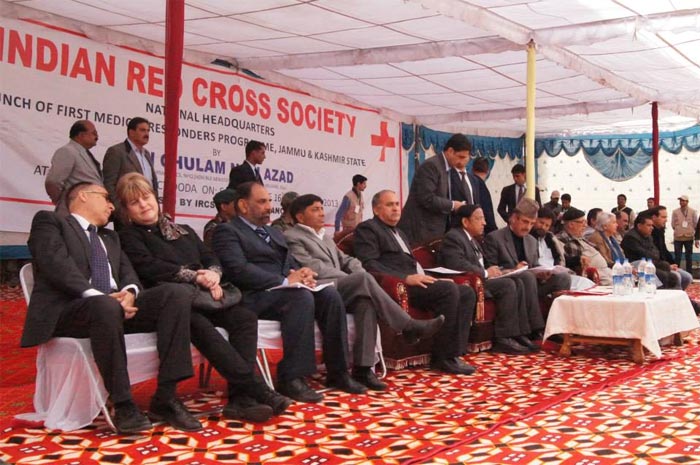
He stressed on the role of the youth in the area of disaster management and said that humanity demanded contribution from even the youngest members of the society for alleviating sufferings of the victims.
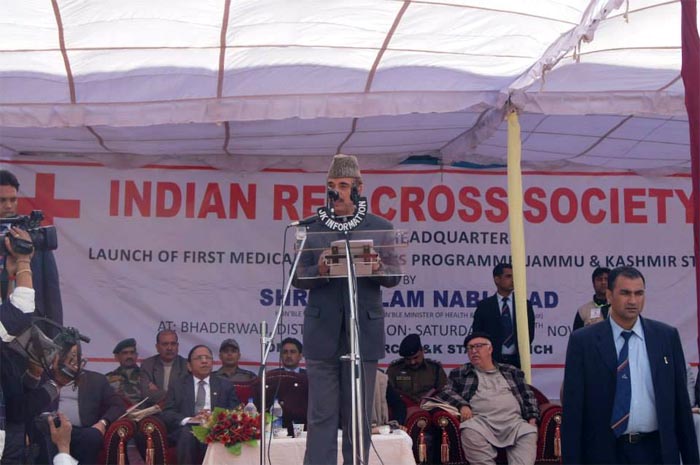
Addressing the audience Shri Ghulam Nabi Azad said “The Chenab Valley is one of the most beautiful valleys, but it’s also prone to disasters, such as earthquakes, and is notorious for road accidents. 80 per cent of the accidents are happening here. Therefore, I welcome the launch of the programme of Red Cross First Medical Responders.”
The First Medical Responders is a unique concept of the Indian Red Cross Society whose pilot programme was launched in Uttarakhand in 2011. An FMR is a person who is certified to provide first aid in emergencies to the community before external help arrives.

Training volunteers in the use of first aid skills makes a difference in the quality of services rendered as the FMRs belong to the affected and neighbouring communities and are already near the scene of disaster. They are the first people to arrive at an emergency scene as they are from the same area.
Dr S P Agarwal, Secretary General of the Indian Red Cross Society said that “Immediate control of bleeding, immobilization of fractures, care of unconscious persons, and quick access to health facilities will save a large number of lives.” He said that availability of the FMRs could be highly useful as the area entails an extremely rough terrain that is accident prone.
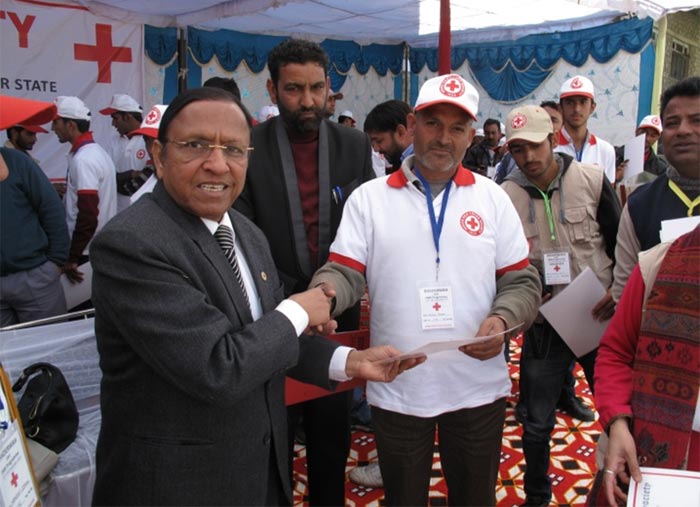
The inaugural session of the FMR training module was preceded by a tough training schedule in which a large number of volunteers were trained for providing first aid, water, sanitation and hygiene promotion, public health and psychosocial support, search and rescue and management of dead bodies.
There was great enthusiasm in the more than 500 young volunteers who had enrolled for the programme despite being exam time for most colleges and institutions in the area.
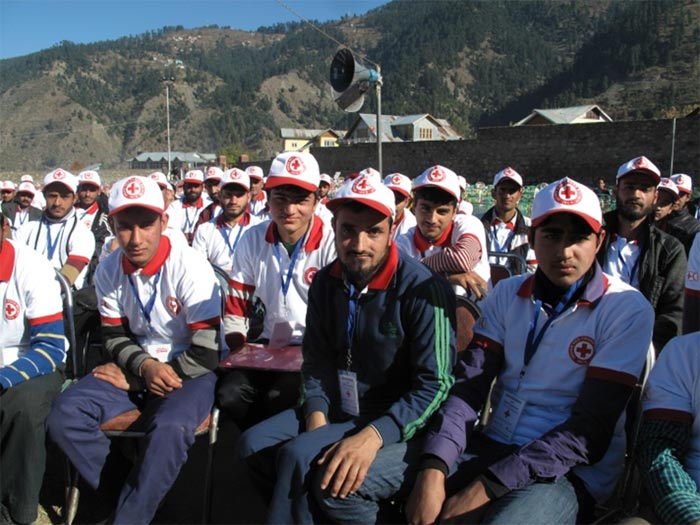
Photo: Maude Froberg
And rightly so, for the memories of the Doda earthquake which measured 5.8 on the Richter scale in May 2013, still loom fresh in their young minds. Many of them camped in tents as houses were declared unsafe and massive destruction took place though lives were saved. The Indian Red Cross Society is now connecting FMRs in all disaster prone states of the country via a mobile network that would make them easily accessible in times of an unpredicted disaster.